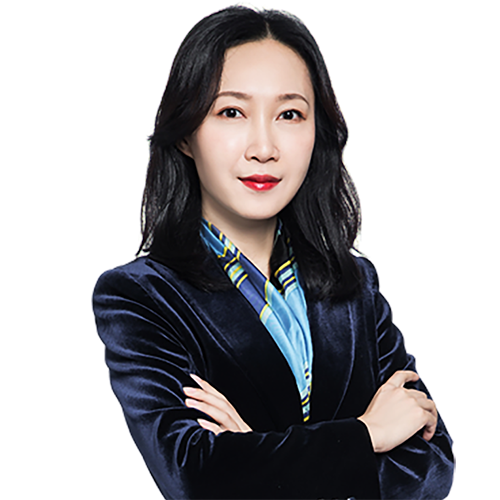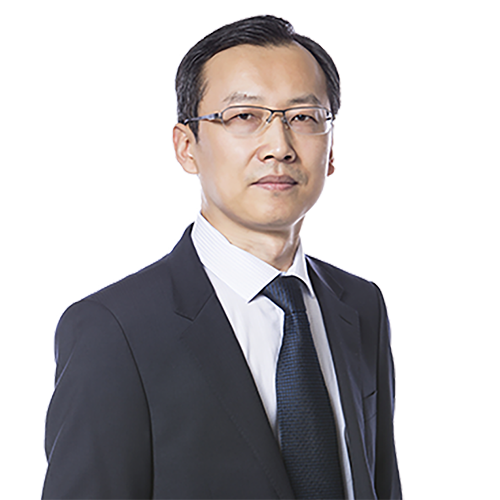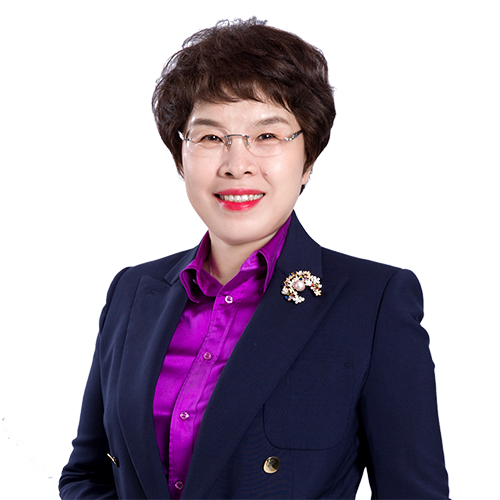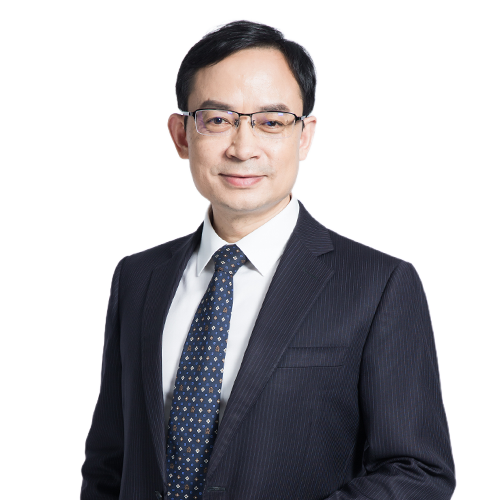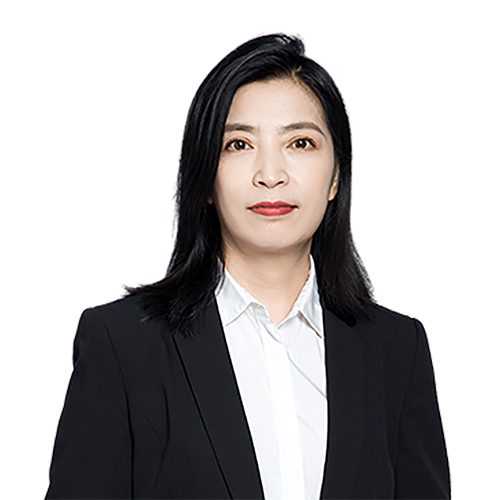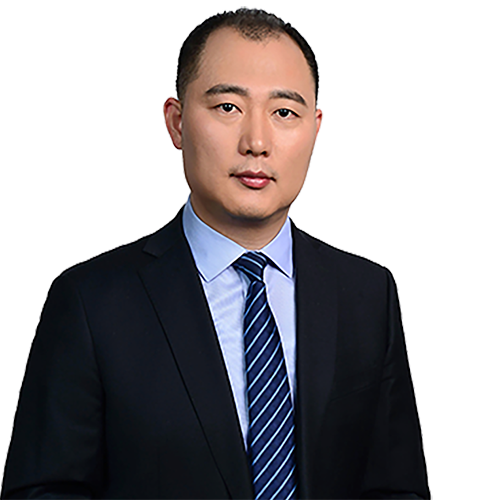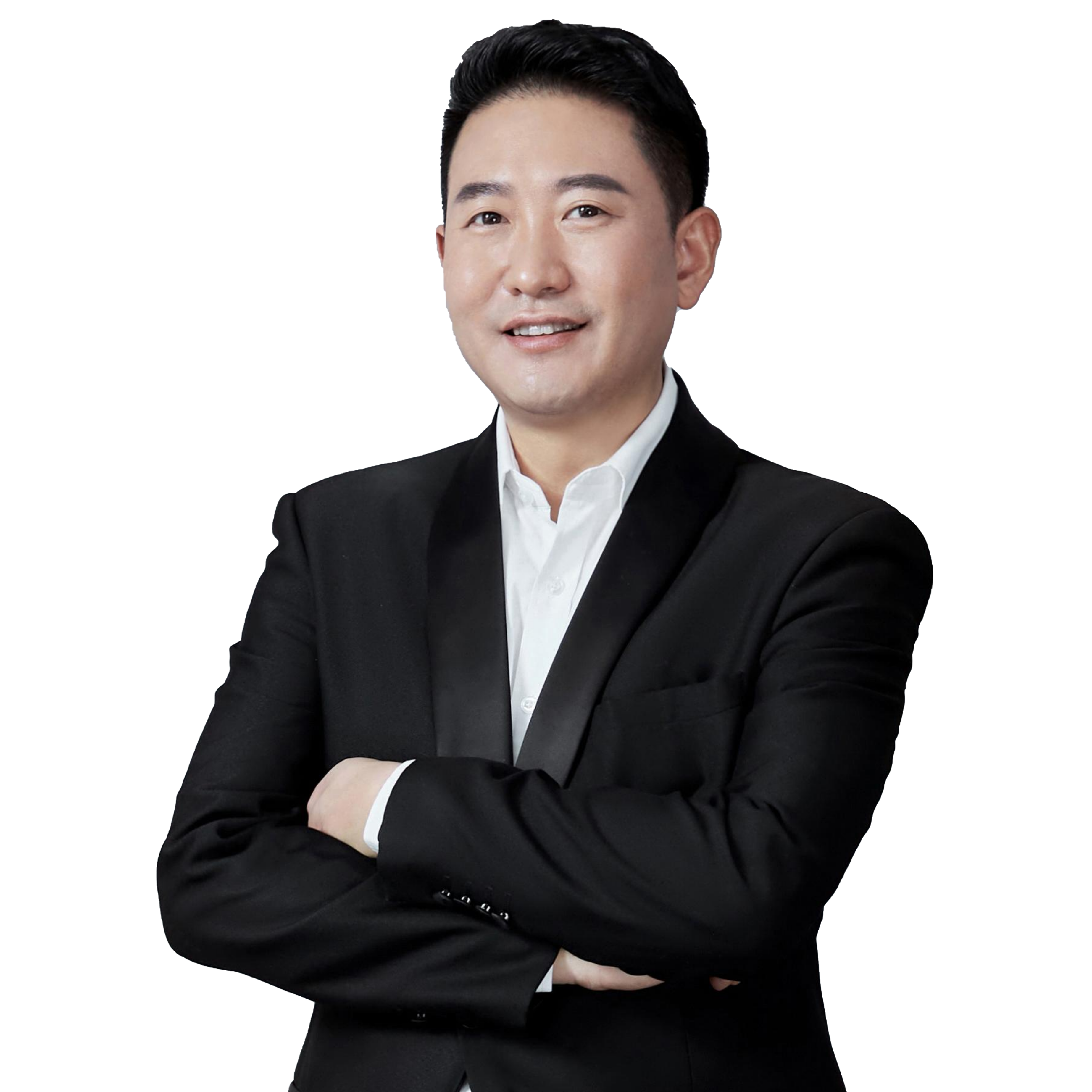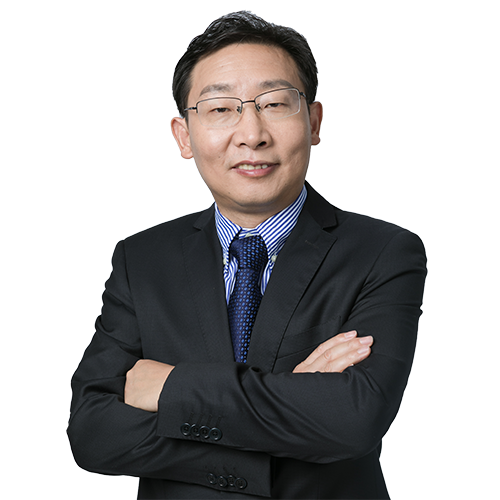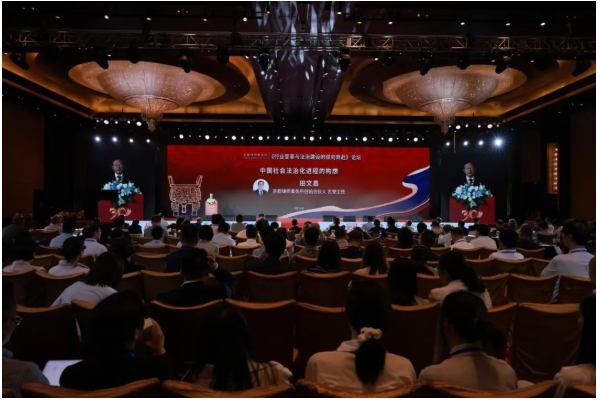
At the age of thirty, one resolves to pursue the path of law with clarity, as a thousand sails race forward to usher in a new chapter.
On August 2, King&Capital Law Firm's 30th anniversary celebration and the “Industry Reform and Rule of Law Construction Forum” were held in Beijing. At this special moment, marking the 46th anniversary of the restoration and reconstruction of China's legal system, the forum aimed to discuss new changes in the legal profession and new directions for lawyers, attempting to reinterpret the new connotations of this ancient profession and promote the resonance between individual values and the future rule of law.
Fan Chongyi, Honorary President of the Institute of Litigation Law at China University of Political Science and Law; Tian Wenchang, Honorary Director of King&Capital Law Firm and Honorary President of the Advanced Institute of Criminal Defense at Northwest University of Political Science and Law; Fan Jiuli, Deputy Party Secretary and President of Northwest University of Political Science and Law; Liu Kaixiang, Professor at Peking University Law School; Wang Minyuan, Professor at Guanghua Law School, Zhejiang University; Ruan Qilin, Professor at the School of Criminal Justice, China University of Political Science and Law; Lu Jianping, Professor at the Law School, Beijing Normal University; Han Xiutao, Professor at the Law School, Beijing Institute of Technology; and Zhu Yonghui, Director of King&Capital Law Firm, attended the forum and participated in the discussion. The forum was hosted by Liu Guiming, joint master's supervisor at Tsinghua University Law School.
The rapid development of the rule of law is an irreversible trend.
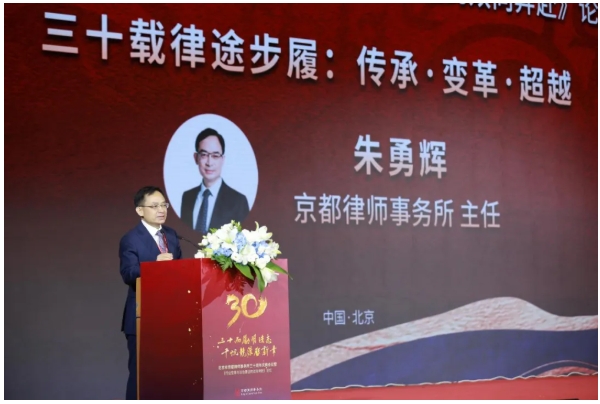
Zhu Yonghui, Director of King&Capital Law Firm, welcomed the guests in his speech. He said that on this special day of King&Capital's 30th anniversary, it was particularly meaningful for the participants to focus on the growth of Chinese lawyers, the development of the Chinese legal profession, and the progress of the rule of law in China. He hoped that this forum would not only explore the journey of Chinese law firms over the past four decades and focus on the transformation of the legal profession in China, but also summarize the experiences and pathways of Chinese law firms' development, promote the common growth of the legal profession, and enable the legal profession to make greater contributions to the country's rule of law construction.
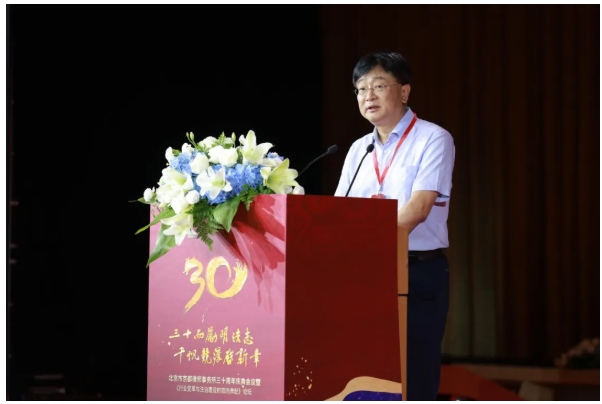
Fan Jiuli, deputy secretary of the Party Committee and president of Northwest University of Political Science and Law, affirmed in his speech the outstanding contributions made by King&Capital over the past 30 years to the cause of the rule of law in terms of legal services and talent cultivation. As a law school with which King&Capital has deep cooperation, he expressed his deep gratitude to King&Capital and lawyer Tian Wenchang on behalf of Northwest University of Political Science and Law. “Standing at a new historical starting point, how the legal profession should respond to the challenges of the times and legal order, achieve high-quality development, and more deeply integrate into the grand process of national rule of law construction is a major issue that every legal professional must deeply contemplate.” He believes that lawyers should ground themselves in the political direction of China's great practice of legal system modernization, focus on strengthening the professional foundation of mutual pursuit, actively expand the collaborative dimensions of mutual pursuit, and serve as proactive promoters of legal talent cultivation and the construction of a legal community.
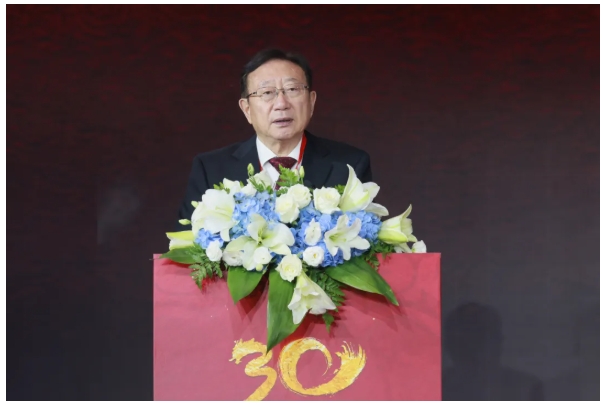
"I believe that the history and future of China's social legal system development can be summarized as: late start, rapid progress, promising prospects, though with some setbacks, the trend is irreversible. The concept of the rule of law in Chinese society can be predicted from different dimensions, such as history, the current situation, future trends, and the responsibilities of legal professionals." Tian Wenchang, honorary director of King&Capital Law Firm and honorary president of the Advanced Research Institute for Criminal Defense at Northwest University of Political Science and Law, said in his keynote speech at the forum that the Chinese lawyer system has gone through more than 40 years, during which the rule of law has developed rapidly and the overall trend is irreversible.
He believes that the development of any matter will not be smooth sailing, and the process of legalization requires the joint efforts of legal professionals. Promoting the legalization process is an unavoidable historical responsibility of legal professionals, directly affecting the development speed of China's legalization process. “The primary task of legal professionals is to guide and promote the public to update their concepts, break free from the intangible shackles of rule-by-man concepts, and recognize and cultivate a mindset of rule-of-law concepts.”
Suggestions for strengthening lawyers' rights, such as the right to know, during the revision of the Criminal Procedure Law
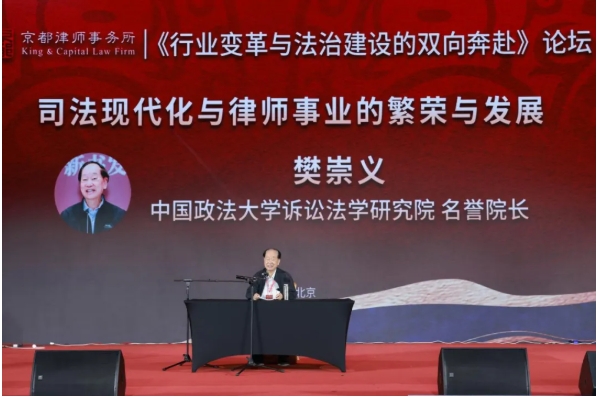
"After entering the era of judicial modernization, there are three major laws that all lawyers should carefully consider. The first law is the law of the evolution and development of litigation functions; the second law is the historical law of the evolution of litigation models and methods; the third judicial law, which I summarize as the law of science, democracy, and civilization. “Fan Chongyi, Honorary Dean of the Institute of Litigation Law at China University of Political Science and Law, based his discussion on the history of revisions to the Criminal Procedure Law. He argued that criminal defense and lawyers are indispensable components of judicial modernization and ”can only develop, not be weakened." Additionally, in the current revision of the Criminal Procedure Law, it is also necessary to consider improving the legal safeguards system, confirming the principle of trial-centered proceedings, and substantively enhancing court hearings. Clear provisions should be made regarding lawyers' rights to information, participation in court investigations, and the right to debate.
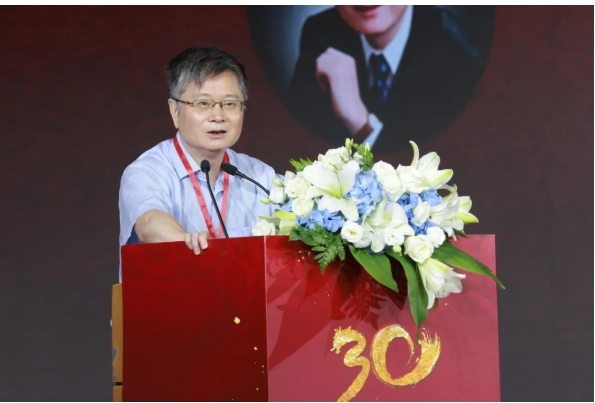
Professor Liu Kaixiang of Peking University Law School mentioned that the professional opinions put forward by the legal profession on the formulation of laws often play a positive role in legislation and amendment. Whether it be the Civil Code, the Company Law, or other relevant judicial interpretations, lawyers have made significant contributions behind the scenes. He suggested that lawyers should not only focus on individual cases but also observe broader phenomena, organize their thoughts into written form, share them at various academic conferences, actively participate in discussions, and contribute their insights from a lawyer's perspective.
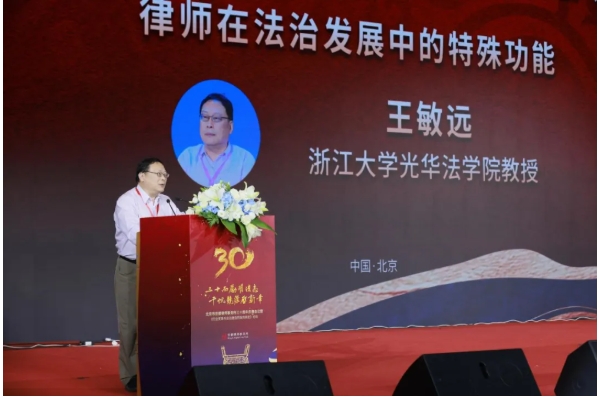
Professor Wang Minyuan from the Guanghua Law School of Zhejiang University stated that since China's reform and opening-up, the number of lawyers has grown from 200 at the beginning to 750,000 by 2024, while the number of judges in China is currently around 130,000. “In terms of the ratio of the population to the number of lawyers, our country is no longer lagging behind, but when comparing the ratio of judges to lawyers, the gap is still quite significant.” He believes that judges in China are among the most overworked in the world, and a key reason for this phenomenon is that the role of lawyers has not been fully utilized. “The greater the role lawyers play, the better the results, and the brighter the future of the rule of law. I believe this is a completely proportional relationship.”
AI will change the way lawyers work and become a consensus
In the subsequent exchange session titled “Industry Transformation: Deconstruction and Rebirth of the Legal Profession,” Xiao Shuwei, secretary of the Party Committee of King&Capital Law Firm, served as the moderator.
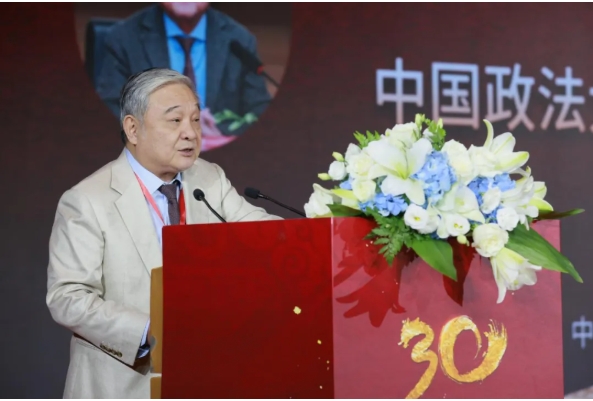
In his keynote speech, Ruan Qilin, professor at the School of Criminal Justice of China University of Political Science and Law, gave a detailed explanation of the changes in the professional skills of lawyers in the AI era. He noted that previously, lawyers could only rely on manual searches to review judicial interpretations, case compilations, and research articles. Now, not only have these materials transitioned from paper-based to electronic formats, but AI's vast data and powerful computational capabilities can also help lawyers quickly complete tasks that previously took hours or even days to finish. However, he also pointed out that AI currently cannot provide accurate answers and that its responses tend to be homogeneous, requiring careful scrutiny before use.
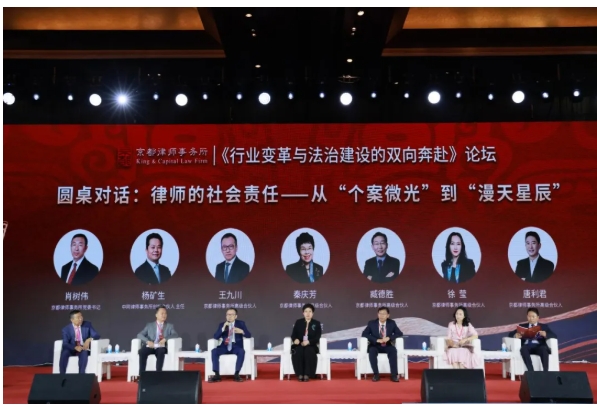
Lawyer Yang Kuangsheng, founding partner of Zhongtong Law Firm, and senior partners Wang Jiuchuan, Qin Qingfang, Zang Desheng, Xu Ying, and Tang Lijun of King&Capital Law Firm all said that lawyers should use individual cases to promote social progress and improve the judicial system so that citizens can share the dividends of the rule of law. The most fundamental aspect is to diligently fulfill one's professional duties. Beyond that, lawyers can engage in additional work such as legal aid and charitable donations to further uphold the public's trust in judicial fairness.
The second part of the discussion focused on the social responsibility of lawyers, entitled “Lawyer Growth: Individual Value and Future Rule of Law Resonance,” and was moderated by Weng Xiaoping, senior partner at King&Capital Law Firm.
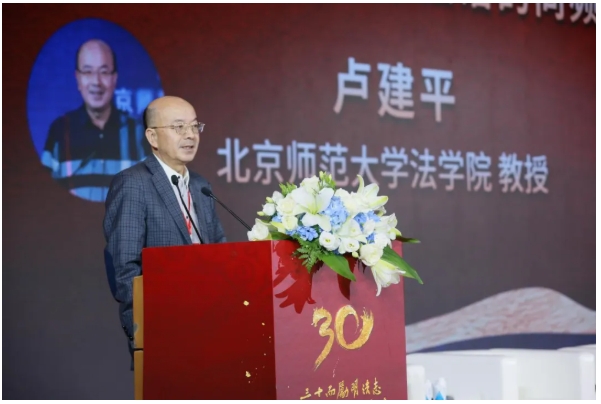
Lu Jianping, professor at Beijing Normal University Law School, also emphasized the impact of the trend toward intelligence on the industry. He noted that the future of the rule of law will undoubtedly become increasingly intelligent, with technology playing an ever-greater role. However, while utilizing intelligent tools and technologies, one must not become overly reliant or blindly trust technology, but instead exercise caution in discerning AI “hallucinations.” Additionally, he believes that the future of the rule of law will also be characterized by systematization, complexity, and globalization, leading to more cross-legal, cross-system, and cross-disciplinary scenarios in practice. Lawyers must therefore transition from traditional individualistic work methods to collaborative teamwork.
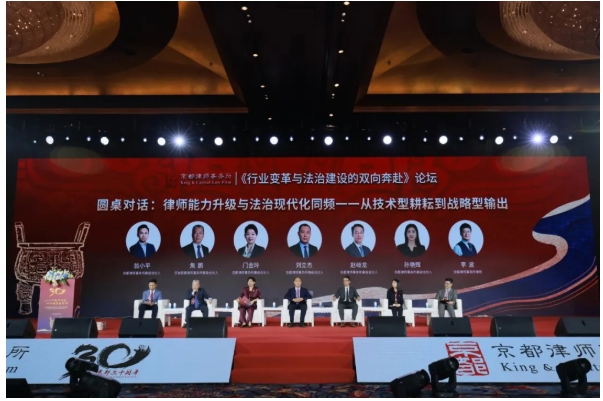
Jiao Peng, senior partner at Tianchi Juntai Law Firm, Men Jinling, Liu Lijie, Zhao Qilong, and Sun Yanhui, senior partners at King&Capital Law Firm, and lawyer Li Bo also believe that lawyers need to arm themselves not only with theory but also with professional skills. Although there are many fans of short videos and AI nowadays, lawyers need to be professional and dedicated to solve the problems of their clients. On this basis, they should then consider using big data and large models to improve work efficiency.
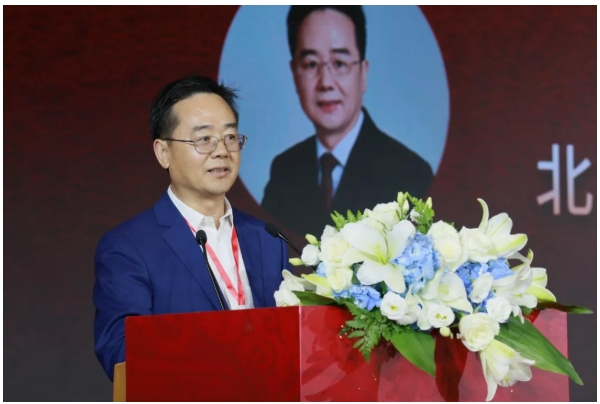
Finally, summarizing the preceding discussions and exchanges, Professor Han Xiutao from the School of Law at Beijing Institute of Technology emphasized the necessity of lawyers strengthening their professional capabilities, noting that lawyers require long-term accumulation in terms of knowledge, skills, and experience. He stressed that while pursuing individual development, lawyers must also strengthen organizational governance and uphold professional ethics. “The space for the development of the rule of law is expanding. As long as we continue on the path of legal modernization, the space for lawyers will grow, and the philosophy of development will improve.”
It is reported that the organizer of this event, King&Capital Law Firm, was established in 1995 by Tian Wenchang, a former professor at China University of Political Science and Law, after he left his position. For 30 years, King&Capital has been guided by the “four principles” of “specialization, integration, teamwork, and internationalization,” and has invested its efforts in university cooperation and social welfare, gaining widespread recognition from all sectors of society.
Translated with DeepL.com (free version)



